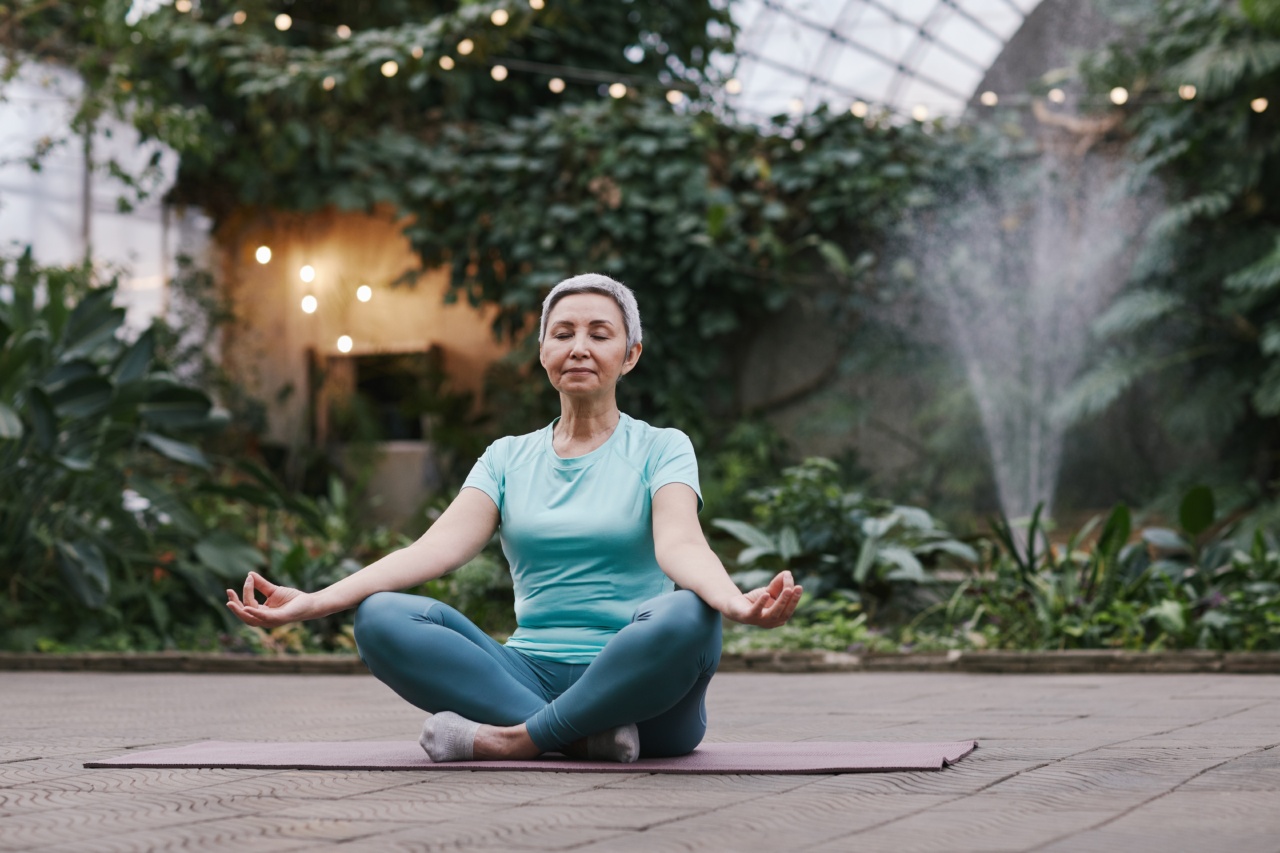Regular exercise is crucial for maintaining good heart health and overall well-being, especially as we age. Engaging in physical activity can help reduce the risk of heart disease, lower blood pressure, improve circulation, and enhance mental health.
However, it is essential for senior citizens to choose exercises that are appropriate for their age and fitness level to prevent injury and maximize the benefits.
The Importance of Heart-Healthy Exercise for Senior Citizens
As we grow older, our cardiovascular system undergoes natural changes and becomes more susceptible to various health conditions. Regular exercise helps combat these age-related changes, strengthens the heart, and improves cardiovascular fitness.
Here are some key benefits of engaging in heart-healthy exercise for senior citizens:.
1. Reduces the Risk of Heart Disease
Heart disease is a leading cause of illness and mortality among seniors. Engaging in regular exercise helps prevent and manage heart disease by reducing cholesterol levels, controlling blood pressure, and improving overall heart health.
2. Lowers Blood Pressure
Hypertension, or high blood pressure, is a common health issue facing many older adults. Regular exercise can help lower blood pressure levels, reducing the risk of heart attacks, strokes, and other cardiovascular conditions.
3. Improves Circulation
As we age, blood vessels may become less elastic and narrowed, leading to poor circulation.
Heart-healthy exercises such as walking, swimming, or cycling promote better blood flow and contribute to the overall health and vitality of the cardiovascular system.
4. Enhances Mental Well-being
Exercise is not just beneficial for physical health, but it also plays a crucial role in promoting mental well-being.
Regular physical activity triggers the release of endorphins, which are natural mood-lifters, thus helping combat feelings of depression, anxiety, and stress.
5. Increases Energy Levels
Many seniors often experience decreased energy levels and fatigue. Engaging in heart-healthy exercise can help boost energy levels, improve stamina, and enhance the ability to perform daily tasks with ease and confidence.
6. Supports Weight Management
Maintaining a healthy weight is important for overall heart health. Regular exercise helps burn calories, build muscle, and prevent age-related weight gain, reducing the risk of obesity, diabetes, and other weight-related health issues.
7. Enhances Joint and Bone Health
Senior citizens are particularly prone to joint pain and age-related conditions such as osteoporosis.
Weight-bearing exercises such as walking, dancing, and low-impact aerobics can help improve joint flexibility, strengthen bones, and reduce the risk of fractures.
Recommended Heart-Healthy Exercises for Senior Citizens
It is crucial to consult with a healthcare professional before starting any exercise program, especially if you have any pre-existing medical conditions or concerns.
Here are some heart-healthy exercises that are generally safe and beneficial for senior citizens:.
1. Walking
Walking is a low-impact exercise that is suitable for almost everyone, regardless of their fitness level. It can be done indoors on a treadmill or outdoors in a park. Aim for at least 30 minutes of brisk walking daily to reap its cardiovascular benefits.
2. Swimming
Swimming and water aerobics are excellent forms of exercise for seniors as they are gentle on the joints while providing a full-body workout.
The buoyancy of water also reduces the risk of falls, making it ideal for individuals with joint pain or arthritis.
3. Cycling
Whether using a stationary bike or cycling outdoors, this exercise helps improve cardiovascular fitness, strengthens leg muscles, and enhances overall endurance.
Cycling also offers a great opportunity to enjoy the outdoors and explore your neighborhood.
4. Chair Exercises
For seniors with limited mobility or balance issues, chair exercises are a great option. These exercises can be performed sitting or holding onto a chair for stability and can help improve strength, flexibility, and blood circulation.
5. Tai Chi
Tai Chi is a gentle, low-impact exercise that incorporates flowing movements, deep breathing, and mental focus. It has been shown to improve balance, reduce stress, and promote relaxation, making it particularly beneficial for seniors.
6. Strength Training
Strength training exercises using resistance bands, dumbbells, or bodyweight help maintain muscle mass, increase bone density, and improve overall strength. It is important to start with light weights and gradually progress to avoid strain or injury.
7. Yoga
Yoga combines physical postures, breathing techniques, and meditation. It can improve flexibility, balance, and strength while promoting relaxation and reducing stress.
Various modifications and props are available to accommodate individual needs and abilities.
8. Dancing
Dancing is a fun and social form of exercise that can be enjoyed by seniors of all fitness levels. It helps improve cardiovascular health, coordination, balance, and mental well-being.
Take dance classes specifically designed for seniors or simply dance around at home to your favorite tunes.
9. Stair Climbing
If you have access to a staircase, using it for exercise can provide an excellent cardiovascular workout. Start slowly and gradually increase the flight of stairs climbed as your fitness level improves. Use handrails for safety and support if needed.
10. Golf
Golf is a leisurely sport that provides both physical activity and mental stimulation. Walking the course, carrying your own clubs, and swinging the club all contribute to cardiovascular fitness and muscle strength.
Be mindful of your physical abilities and avoid overexertion.
Conclusion
Engaging in heart-healthy exercises is vital for senior citizens to maintain good cardiovascular health and overall fitness.
By choosing suitable activities and gradually increasing the intensity and duration, seniors can enjoy the numerous benefits of regular exercise, including improved heart function, reduced risk of disease, increased energy levels, and enhanced mental well-being.































